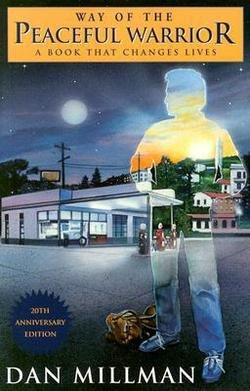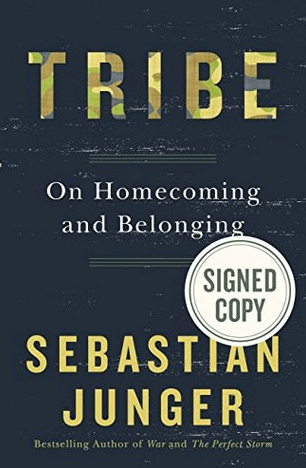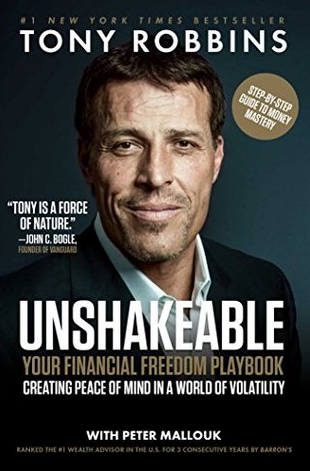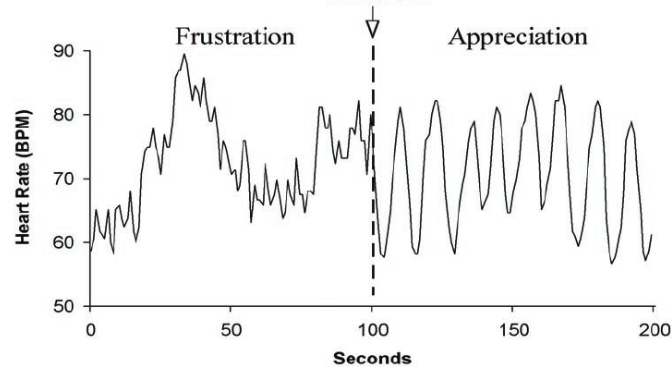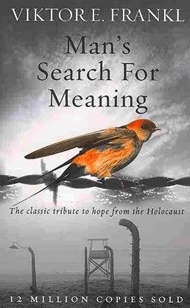The Time Trap
Tanya Cross
on
October 7, 2021
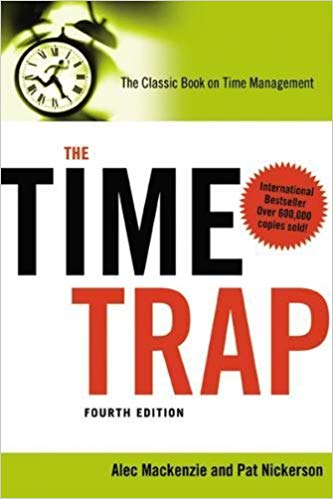
The Time Trap
This book is perfect for anyone who wants to decrease wasted time and increase productivity.
Have you ever noticed that you have an increase in productivity on your last day before you go on vacation, you get three days’ work in one? Every day you have 1440 minutes, 24 hours. If you say ‘I don’t have enough time’, its because you didn’t manage your time effectively. Are you effectively using your time?
You aren’t looking for what others can do differently to help you with your time management but what you do to allow your time being wasted. Your time challenges stem from the fact you are usually the problem, not someone else. It means doing the hard work of changing habits. It is definitely worth the effort and the benefits are profound.
The value of time management is not control, but the way it will transform your life. Stress can reduce, increase balance in other areas of life, increase in productivity and progress towards personal and professional goals.
Strategic Planning
Plans put you in action. If you don’t know where you are going, it doesn’t matter which road you take. And it doesn’t matter how long it will take to get there. If you have several key objectives that you consider significant, if you know a few basic principles of time management, you can achieve it. The key is concentrated effort on your real priorities.
Some of your goal planning involves achievements that are important to you as an individual. Other goals are dictated by, or related to, the organization’s strategic plans and in turn, your boss’s plans and priorities for you and other team members. Ideally, the company’s long range goals should be shared with all employees. That way, everyone is on the same page.
Goal setting sequence starts with a long range goal, a specific target. Then you work the long range goal down to today, setting successively shorter range targets, usually called objectives. There is a distinction between goals and objectives.
A goal is long range and the period of time varies considerably.
Objectives are the intermediate targets with shorter timeframes.
A goal is demanding
A goal is achievable
A goal has a deadline
A goal is agreed to by those who must achieve it
A goal is written down
A goal is flexible
Priorities
People often confuse goals, or objectives with priorities. Priorities are objectives that have been ranked in order of importance. These priorities guide you in the planning of your day, they tell you where you should put your energy.
Create an ideal day template. Block out time for quiet time, uninterrupted work time, phone calls, emails appointments, and status checkpoints.
If you really want to be more effective in the use of your time, planning in advance is the best thing you can do for yourself. A daily plan in writing is the single most effective time management strategy, yet only one person out of ten does it. The rest go home muttering ‘Where did the time go?’
Time Log
The greatest benefit of a time log is it will identify your real problems relating to time use. This is the most practical step you can do to review your current time and how you can make it more productive.
What activities produces you zero results?
Keep a time log for everything you do in a day. Record everything you do, from morning until night, including daydreaming, socialising, tv watching, resting, not just work, everything. Do it all day long, not at the end of the day when you will forget the little things. The time you will save will outweigh the time it will take for you to do it. You will become more astutely aware of what requires changing.
Twenty of the biggest time wasters and how to work on them
- Management of crisis
- Telephone interruptions
- Inadequate planning
- Attempting too much
- Drop in by visitors
- Ineffective delegation
- Lack of personal discipline
- Personal disorganisation
- Inability to say no
- Procrastination
- Meetings
- Paperwork
- Leaving tasks unfinished
- Inadequate staff
- Socializing
- Confused responsibility or authority
- Poor communication
- Inadequate controls or progress report
- Incomplete information
- Travel
1. Crisis Management
Planning prevents crises. Have a contingency plan for when a crisis might happen.
- Identify potential problems by asking “What could go wrong?’
- Rank them in priority order consider degree and probability of occurrence
- Develop steps to prevent them
2. Telephone Interruptions
Pick me up! I may be important. I have to take these calls. This could be your thinking around phone calls. You might have a desire to keep informed, fear offending someone, feel you are important and you have to take the call, pressure to socialise. There are a number of reasons why.
Block interruptions by either have someone else handle your calls and prioritize them and they may answer or refer the call on, postpone the call for when you are available. Consider a quiet hour. No phone, no email. Just concentrated work. Batch you calls together, return them in a block, set up times to call people. Don’t wait or play phone tag. Set the tone of the call to start.
3. Inadequate Planning
If you don’t plan your day, other people will ‘plan’ it for you; their actions will determine your priorities. Planning doesn’t take too much. Effective planning will save you time in execution. Write your plan down. Get your number one priority first. This is because you are at your best first thing, the rest of the day is downhill and if nothing else in your plan gets done, you can leave at the end of the day feeling you have accomplished your top priority.
Objectives
For significant personal and professional long-range goals, shorter range objectives are set and planed a year at a time, including timelines. Progress is measured monthly.
Project plan
Major projects are in a timeline, with key dates and checkpoints noted. Progress is measured weekly.
Monthly plan
Project checkpoint dates and deadlines for objectives that fall within the month, known appointments, travel plans, scheduled meetings, and so forth. 18 months is allocated for forward planning at the end of the year.
Daily plan
Do a weeks’ worth at a time. Project dates that fall within the week are transferred. Each day is divided into goals, appointments and to do’s.
Plan for today
This helps to eliminate thoughts of what to do next and improves quality of work. Reduces busyness syndrome, goals are visible and not forgotten.
Goals for the day
The two, three or four or five task that must get done. Rank them. Set a time when you will do it and a timeframe to achieve it in. Scheduled appointments, meetings, blocks of time set aside for specific task.
To do list
The things you don’t want to forget, low priority task you hope to get done.
Stick to your plan. If someone interrupts, question yourself, do you have a few minutes to give up?
4. Attempting too much.
Learn to delegate (see number 6), learn to say no to the boss, learn to estimate time better.
How to stop attempting too much. If you frequently find yourself trying to do too much, how do you stop? Try these ideas:
Stop telling yourself you work best under pressure; nobody works best under pressure.
Resist the urge to step in and take over because others are not doing their job. Their work is their responsibility.
Don’t assume that everything has to be done; learn to discriminate low priority work and ignore where possible.
Ask yourself if part of the problem is lack of organisational skills.
Stop trying to make everything perfect; some things are simply not worth the extra effort
5. Drop in visitors
People can take up a lot of unnecessarily time. “Got a minute” never means a minute. Before you say yes, ask what it is about. Control the time with drop in visitors by setting up a meeting with them, do it in 30 minutes if you can rather than an hour, see if they can confer with someone else and encourage them to work out a solution on their own.
6. Ineffective Delegation
People choose not to delegate because of a few reasons. They believe they are the only ones who will do it well, anxiety about the other person making a mistake or seek perfection in their work or they are comfortable with their work.
Effective delegation comes from giving clear instructions, give commensurate authority, follow up and coach when needed.
Do nothing that you can delegate.
7. Personal Disorganisation
Create an integrated personal system and have the discipline to do it everyday. Keep your desk clean, only have what you are currently working on in view as to not scatter your mind and help keep you focused.
Toss the to do list and only work on the highest priority list. Don’t have multiple lists
because it will cause you headaches, have just one. Keep deadlines visible. Your deadlines will keep you on track, so don’t lose sight of them. Literally.
8. Lack Of Self Discipline
Self discipline is the key to making the most of your time. It takes discipline to stick with one important job until it is finished. It takes discipline to refrain from interrupting a coworker to ask about routine matters.
Self discipline is a habit. It can also be a lack of deadlines and priorities, which encourage putting things off and doing what you like rather than what is important. Failure to follow up, which renders corrective. It can also be a lack of challenging goals that you are working towards.
9. Inability To Say No
It has been said that the strongest time management skill is the tiny word ‘no’. It is the
strongest tool, and not certainly on top of the list.
Think about the requests you get. If one request catches you off guard, think about it for 10 seconds before answering.
The four steps in saying no are,
- Listen, make sure you fully understand what is being asked of you
- Say no. If your decision is no, don’t build up false hope with wishy washy answers
- Give reasons. If appropriate, explain your reasons as this enforces credibility
- Offer alternatives. Demonstrate other options to meet the person’s values
10. Procrastination
What I have learned about procrastination is that you don’t delay things that are of value to you. You hesitate, frustrate and procrastinate on those lower values. This chapter talks about potentially the fear of failure as a strategy to not accomplish the task.
There is danger in a delay. There can be potential for mistakes when you work under pressure. Also, when you delay, you don’t allow time to speak to relevant people, to make adjustments and edits and last-minute changes.
When you are the boss. Build confidence in doing rather than being complacent. Focus on starting rather than finishing tasks or projects. Be decisive and set priorities.
You are in control of your decisions and your procrastination. Make a conscious effort to develop a ‘do it now’ attitude.
11. Meetings
The average manager spends 10 hours a week in meetings, 90% of managers say half their meetings are wasted time. That’s 5 hours a week, 250 hours a year for each person in the meeting.
When running a meeting, decide what the meeting is for
- To coordinate action or exchange information
- To motivate the team
- To discuss problems on a regular basis
- To make a decision
Prepare an agenda and invite the right people and then dismiss staff who no longer are required to be there. Start on time and delegate the start if you are the organiser and might be running a little late. Stick to the agenda and keep socialising to a minimum.
12. Paperwork
When you receive paperwork, ask your assistant to handle as much as possible so you are only doing the highest priority items. Delegate if any incoming paperwork can be done by someone else. File if it is not urgent, do it later and stay focused on high priorities. Expedite those that require your personal attention.
Email writing can take time. You don’t have to be perfect, adequate is great. Dictate if you can, it’s faster, consider alternatives, like a phone call rather than writing.
13. Leaving A Task Unfinished
Have a compulsion to close. When you are interrupted, have the self discipline to continue what you were doing rather than becoming distracted of focusing on another task. Set deadlines, build a cushion to allow for delays, learn to anticipate problems and have strategies on how you will deal with them.
14. Inadequate Staff
The question of inadequate staff has two aspects, not having enough people or the right
people. Both are fixable. Focus first on your current team, what changes can be made to enhance their productivity? On each role, prepare a thorough cost analysis outlining tasks of what is to be achieved.
When you have the wrong person in the role, check they are aware of their role and
responsibilities. They may not have been told they weren’t doing a great job because they weren’t told what they were supposed to do. You may be in a position of influence, to shape your team through training. You can also lead and guide them on through their day by day work too.
15. Socializing
Developing friendships at work creates more meaning and satisfaction at work. However, how much could be outside of work or how much time are you missing out on working due to a chat.
Do a review of how much time you spend socializing with work mates each day, each week? Add it up. You might find it is a lot more than you think. Create techniques to exit friendly conversations like “I would like to hear more, I have a deadline due by 5pm, let’s chat about this at lunch tomorrow.”
Evaluate the physical set up of your desk. Is it in the line of traffic with people? Can you move to be more productive? If you have an office, remember, it’s your office, and your time in there.
16. Confused Responsibilities & Authority
Two people each think they’re supposed to do the task – so it gets done twice.
Two people each think the other is supposed to do it, and it doesn’t get done.
One person has been giving a task, but the other doesn’t know it and doesn’t cooperate.
Two people each think they have been given authority to do something, and they give conflicting instructions to others.
Ensure effective communication in the organisation. If you are responsible for a job, make sure the people at the top let others know. Have inter-team communication. Have leaders and team communication. Whenever you give authority to someone, ensure people are made aware of it. To be effective, authority has to be made public.
Page 17. Poor Communication
Anytime you communicate, clarify your purpose, select the appropriate channel, such as email, phone, or in person. Compose the message clearly. Transmit it as clearly as possible, request feedback to check understanding, and never assume you are on the same
wavelength.
18. Inadequate Controls & Progress Reports
The purpose of a progress report is to provide a structure which you can spot deviations, potential problems or other unexpected occurrences that may slow down or influence the project and spot them in time.
19. Incomplete Information
Work out a system for the information in each project or task. Ask the following questions.
What information is needed at all stages of the project, where is the information coming
from and going to? Which people and departments are involved? Who will be responsible for gathering the information?
Always assign responsibility to someone for collecting, collating and disseminating the information.
Work out a schedule of when key people need which key information when. What might go wrong, where might be the source of delay? What steps can you take to prevent a delay or create a buffer of time on your project?
20. Travel
When travelling, even if it is the commute to work, the airport, flying, use your time effectively. Use it for time to work, read, catch up on emails. It becomes dead time and for some, it can be many hours a week of unproductive time. Don’t overlook little bits of time to solve a problem or answer an email. You could also use the time to review a plan or plan another project.
Discipline yourself when you return to get what you need done post trip, like respond to
people, close off files or note take and update your team on the progress of opportunities while you are away.
Now it’s time to begin to implement these strategies and watch your business and life transform.
With gratitude,

